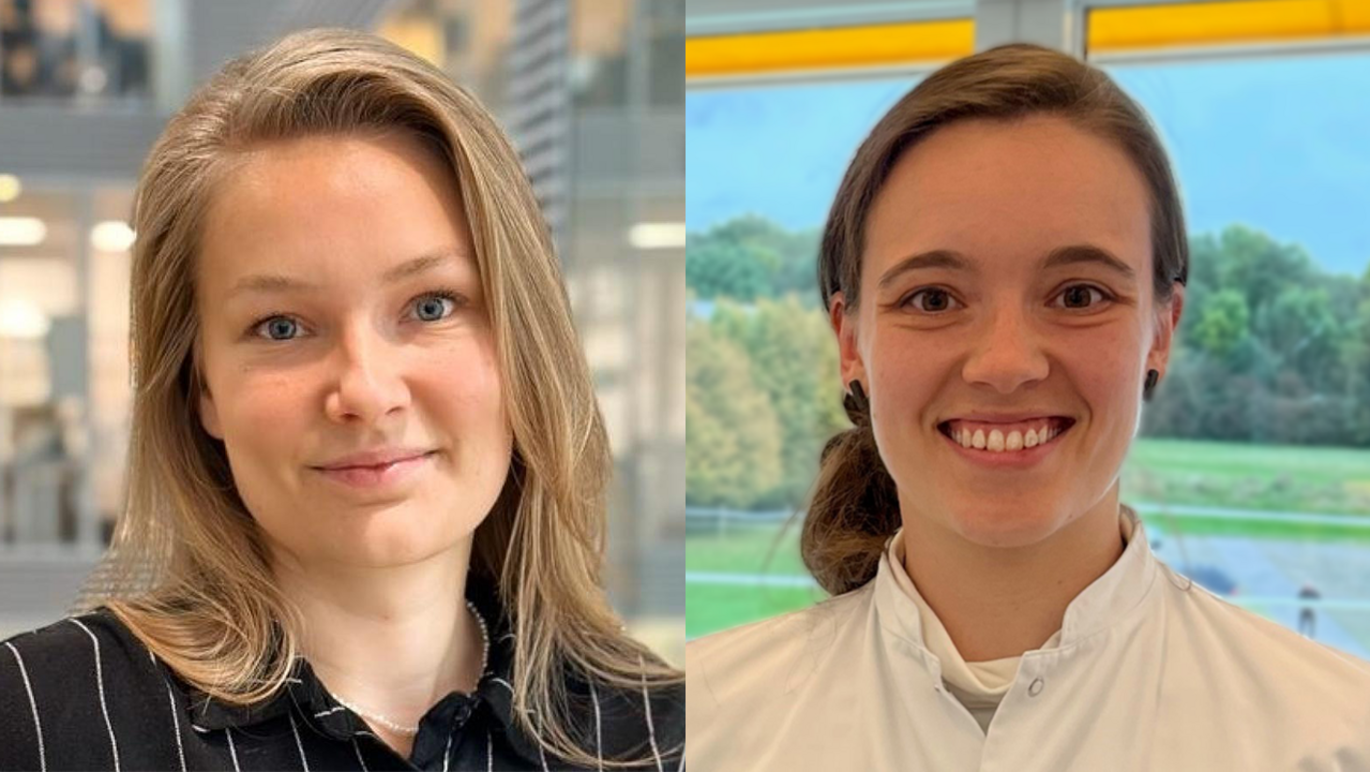Two researchers from Health receive talent awards from the Lundbeck Foundation
Sia Viborg Lindskrog and Tenna Henriksen from the Department of Clinical Medicine are among the five researchers under the age of 30 to be awarded the Lundbeck Foundation Talent Prize 2023. They are both cancer researchers and will each receive DKK 200,000 earmarked for research and DKK 100,000 as a personal prize.

Sia Viborg Lindskrog is a PhD student at the Department of Clinical Medicine and her research focuses on identifying molecular sub-groups of bladder cancer. She is receiving the prize for her work on analysing the genetic material of cancer cells, i.e. DNA and RNA, in order to increase our understanding of the biology of tumours and to investigate whether we can apply that knowledge to improving treatment of bladder cancer.
“In the early stages of bladder cancer, my colleagues and I focus on the tumour itself by analysing the RNA molecule content of the cells. This helps us create a profile of the genes expressed in the tumour. Having done this we could divide tumours into several sub-groups according the aggressiveness of the individual tumour. So far, I've found one high-risk type, two low-risk types and one in between. I hope that the types of analyses we’re carrying out will help each patient receive exactly the treatment they need in the future,” says Sia Viborg Lindskrog.
Tenna Henriksen is a postdoc at the Department of Clinical Medicine and she hopes her research will detect recurrences of colorectal cancer using blood tests. She is receiving the Lundbeck Foundation Talent Prize 2023 for her research on early detection of cancer DNA residues in the blood after treatment for colorectal cancer.
“Basically, my research is about finding traces of colorectal cancer after the patient has undergone surgery. This involves identifying tiny, molecular DNA traces in a blood sample, which can indicate the cancer is returning. The crucial thing is to identify patients at high risk of recurrence and who therefore need different treatment than people at low risk of recurrence. Once a person has been identified as high-risk, we can start scanning them more often and hopefully early enough to begin effective treatment,” says Tenna Henriksen.
Contact
PhD student Sia Viborg Lindskrog
Aarhus University, Department of Clinical Medicine and
Aarhus University Hospital, Department of Molecular Medicine (MOMA)
Email: svl@clin.au.dk
Postdoc Tenna Vesterman Henriksen
Aarhus University, Department of Clinical Medicine and
Aarhus University Hospital, Department of Molecular Medicine (MOMA)
Email: tvh@clin.au.dk
